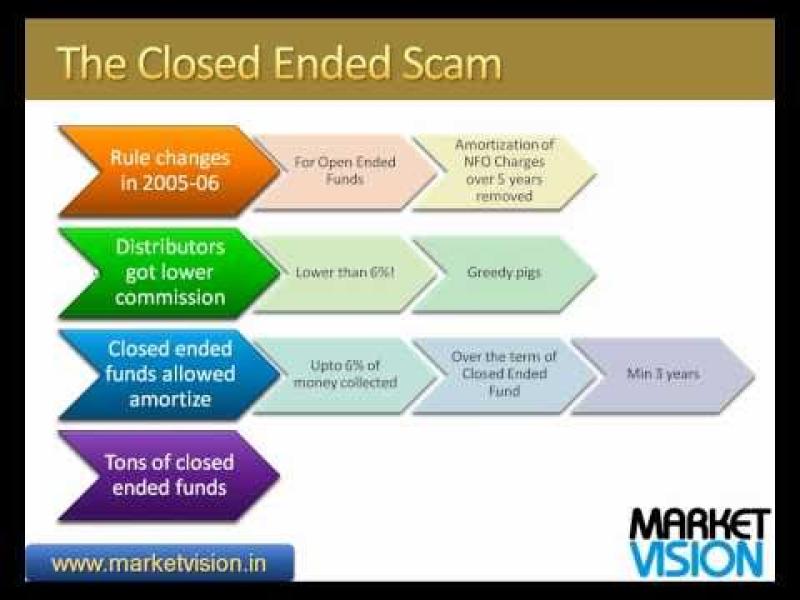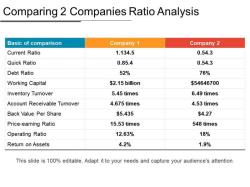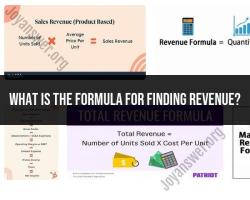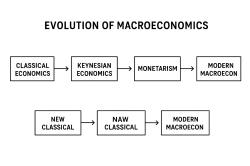Why can closed-end funds trade at a discount?
Closed-end funds (CEFs) can trade at a discount or a premium to their net asset value (NAV), and the discount phenomenon is influenced by several factors. Here are some key reasons why closed-end funds may trade at a discount:
Market Sentiment and Perception:
- Investor sentiment and perceptions about the fund's performance, management, and future prospects can impact its market price.
- If investors have a negative view of the fund or the market it invests in, they may be less willing to pay the full NAV, leading to a discount.
Supply and Demand Dynamics:
- The market price of closed-end funds is determined by supply and demand. If there are more sellers than buyers, the price may decline, leading to a discount.
- Limited liquidity in some closed-end funds can exacerbate the impact of supply and demand imbalances.
Distribution and Dividend Yield:
- Closed-end funds often distribute income through dividends. If the market perceives that future income distributions are uncertain or may decrease, it can contribute to a discount.
- Investors may also focus on the current dividend yield, and if it is lower than expected or if interest rates rise, the discount may widen.
Leverage and Expenses:
- Some closed-end funds use leverage to enhance returns. While leverage can amplify gains, it can also magnify losses, leading investors to discount the NAV.
- High management fees and expenses can also contribute to a discount. If investors feel that the fees are too high relative to the fund's performance, they may be less willing to pay a premium.
Market Conditions:
- Overall market conditions can impact the pricing of closed-end funds. During bear markets or periods of heightened uncertainty, investors may demand a higher risk premium, leading to discounts.
Lack of Redemption Mechanism:
- Unlike open-end funds (mutual funds), closed-end funds do not issue or redeem shares at the NAV. This lack of a direct redemption mechanism can lead to pricing discrepancies and discounts.
Discounts as Buying Opportunities:
- Some investors actively seek closed-end funds trading at a discount, viewing it as an opportunity to buy assets at a lower price than their underlying value. This demand can help mitigate discounts.
Market Mispricing:
- Inefficiencies or mispricing in the market can contribute to discounts. Investors may not fully understand or appreciate the underlying assets, leading to discrepancies between market price and NAV.
It's important to note that the discount or premium on closed-end funds can fluctuate over time, influenced by changes in these factors and market conditions. Investors should carefully consider these dynamics and conduct thorough research before investing in closed-end funds.
What is a closed-end fund discount?
A closed-end fund (CEF) discount is the difference between the net asset value (NAV) of the fund's portfolio and the market price of the fund's shares. NAV is the total value of the fund's assets divided by the number of shares outstanding. The market price is the price at which shares of the fund are trading on an exchange.
CEFs can trade at a discount to NAV for a number of reasons, including:
Market sentiment: If investors are generally pessimistic about the market, they may be less willing to pay full price for CEFs, even if the NAV of the fund is strong.
Liquidity: CEFs are generally less liquid than ETFs, meaning that there are fewer buyers and sellers, which can make it more difficult to trade the shares at fair value.
Fund-specific factors: The specific characteristics of a CEF, such as its investment objective, fees, and track record, can also affect its discount.
What factors affect closed-end fund discounts?
Several factors can influence closed-end fund (CEF) discounts, including:
Market sentiment: Overall market sentiment plays a significant role in CEF discounts. During periods of bearish sentiment, investors tend to be more risk-averse and may sell CEFs at discounts to their NAV, fearing that the underlying assets will decline in value. Conversely, in bullish markets, investors may be more willing to pay premiums for CEFs, anticipating that the underlying assets will appreciate.
Fund-specific factors: The characteristics of an individual CEF can also impact its discount. Factors such as the fund's investment objective, fees, track record, and distribution history can influence investor perception and, consequently, the discount.
Supply and demand dynamics: The supply and demand for a particular CEF's shares can also affect its discount. If there are more sellers than buyers, the discount will tend to widen, as investors compete to sell their shares at lower prices. Conversely, if there are more buyers than sellers, the discount may narrow or even disappear, as investors push the price up to acquire shares.
Interest rates: Interest rates can also play a role in CEF discounts, particularly for CEFs that invest in income-generating assets like bonds. When interest rates rise, the value of these assets tends to decline, which can lead to wider discounts. Conversely, falling interest rates can support the value of income-generating assets and narrow CEF discounts.
How do I take advantage of closed-end fund discounts?
Closed-end fund (CEF) discounts can present opportunities for investors seeking to acquire assets at a potentially favorable price. However, it's crucial to approach such investments with caution and thorough due diligence. Here are some considerations when evaluating CEFs with discounts:
Understand the reason for the discount: Before investing, investigate the underlying reasons for the discount. Is it due to general market sentiment, fund-specific factors, or supply and demand dynamics? Comprehending the cause will help you make an informed decision.
Evaluate the fund's investment objective and strategy: Carefully assess the fund's investment objective and strategy to ensure it aligns with your risk tolerance and investment goals. Consider the fund's focus, such as specific asset classes or sectors, and its use of leverage, if applicable.
Analyze the fund's historical performance: Review the fund's historical performance to gauge its ability to generate returns and manage risk. Consider metrics like total returns, risk-adjusted returns, and consistency of performance.
Assess the fund's fees: Evaluate the fund's expense ratio and other fees to understand the overall cost of ownership. Compare the fees to similar CEFs and ETFs to ensure they are reasonable.
Consider the fund's management: Research the fund's management team, including their experience and track record. Evaluate their investment philosophy and approach to managing the fund's portfolio.
Monitor the discount over time: Keep an eye on the discount over time to assess its persistence and identify potential changes. A widening discount may indicate underlying concerns, while a narrowing discount could suggest improving sentiment.
Seek professional guidance: Consult with a financial advisor to discuss your specific investment goals and risk tolerance. They can provide personalized advice on whether CEFs with discounts are suitable for your portfolio.













